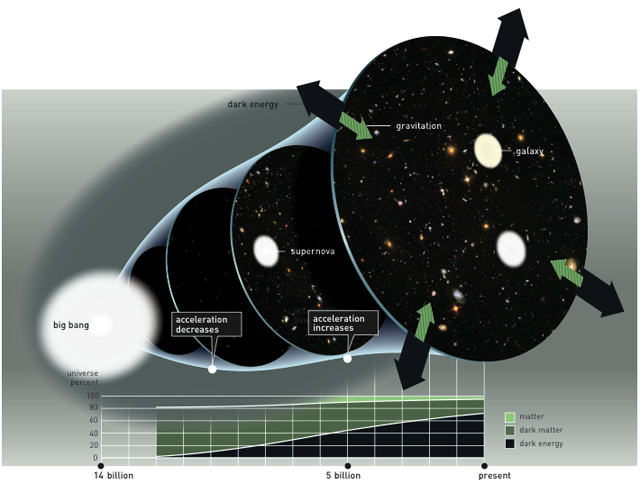
Expansion driven by dark energy is now overwhelming the effect of gravity. (credit: Photograph by Copyright Nobel Media)
Two decades ago, scientists found that the Universe’s expansion is accelerating. This was the complete opposite of what had been expected: the expansion should be slowing down due to gravity, not speeding up.
At first, researchers didn’t know how to account for it. But they went back to Einstein’s equations for his General Theory of Relativity and discovered that a term he’d abandoned as his “biggest blunder”—the cosmological constant—actually described this expansion pretty well. There was only one problem: we can’t see the energy that’s driving the expansion. Nonetheless, researchers have gravitated to the idea that the energy is there, and they’ve labeled it dark energy. With time, dark energy has become a cornerstone of our current model of the Universe.
But not everyone was convinced. Some wondered if there was another way to explain the Universe’s accelerating expansion. One possibility is that gravity doesn’t work the same way on cosmological scales as it does on local scales. The idea is appealing in that it doesn’t require the existence of a vast amount of stuff that we can’t figure out how to observe. While the idea hasn’t gained much traction, it also hasn’t been ruled out.




